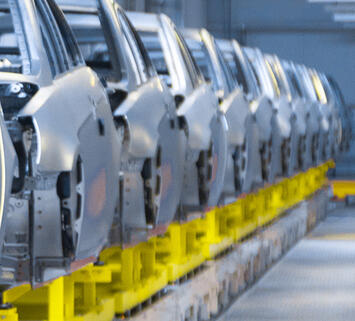
Zero emissions at ANY COST seems to be the direction being mandated by governments and the Environmental, Social and Governance (ESG) movements around the world, to divest in fossil fuels.
The few healthy and wealthy countries of the United States of America, Germany, the UK, and Australia representing 6 percent of the world’s population (505 million vs 7.8 billion) that are mandating social changes to achieve zero emissions may be fueling (no pun intended) a death spiral for the automobile industry.
Simply put, in these healthy and wealthy countries, every person, animal, or anything that causes emissions to harmfully rise could vanish off the face of the earth; or even die off, and global emissions will still explode in the coming years and decades ahead over the population and economic growth of China, India, Indonesia, Japan, Vietnam, and Africa.
We will look at each of the “pieces of the EV puzzle” that may be the formula for an automobile industry death spiral:
- Extremely limited supply chain for the lithium to make current technology EV batteries
- Lack of sufficient number of buyers, outside the elite profile of existing EV owners
- Shortage and inflation for all the material supplies to make vehicles.
- Due to EV battery fire potentials, questionable means of transporting EV from foreign manufacturers to the USA.
- Concern about renewable electricity being able to charge EV batteries.
- The Governments’ lack of ethical, moral, and social responsibilities, by encouraging the exploitations of people with yellow, brown, and black skin that are mining for exotic minerals and metals in poorer developing countries to support the green movement in wealthy countries.
Where are the batteries?
While the race is on to produce more lithium in the United States as the supply chain for the major component of EV batteries, lithium, is already being compromised internationally. The following international dark clouds on the lithium supply chain may be a prelude to an American rejection of strip mining in the most environmentally regulated and controlled communities in the world:
- The Chilean Supreme Court stopped the mining of lithium in Salar de Atacama, Chile – a huge chunk of terrain that holds 55 percent of the world’s known deposits of lithium.
- Initiatives around the world to open mines and ore processing plants have caused a public uproar as environmentalists and the local population are fearful about the impact on nature and people’s livelihoods.
- The European Chemicals Agency's (ECHA) risk assessment committee is aiming at labelling three lithium compounds as dangerous for human health
Where are the buyers?
The current EV ownership profiles of the oligarchic elite that are highly educated, highly compensated, multi-car families, with low mileage requirements for the families second car, are dramatically different from most vehicle owners that are single-car owners, not highly educated, nor highly compensated. Mandating a change to EV ownership and forced austerity may face a rebellion from those that need transportation.
Where is the transportation from the foreign manufacturers to the car dealers?
In 2019, China, Japan, India, Germany, and South Korea were manufactured more than 50 million vehicles compared to the 11 million that were manufactured in the USA.
Read the rest of this piece at Heartland Institute.
Ron Stein is an engineer who, drawing upon 25 years of project management and business development experience, launched PTS Advance in 1995. He is an author, engineer, and energy expert who writes frequently on issues of energy and economics.
Photo: Courtesy Heartland Institute.












